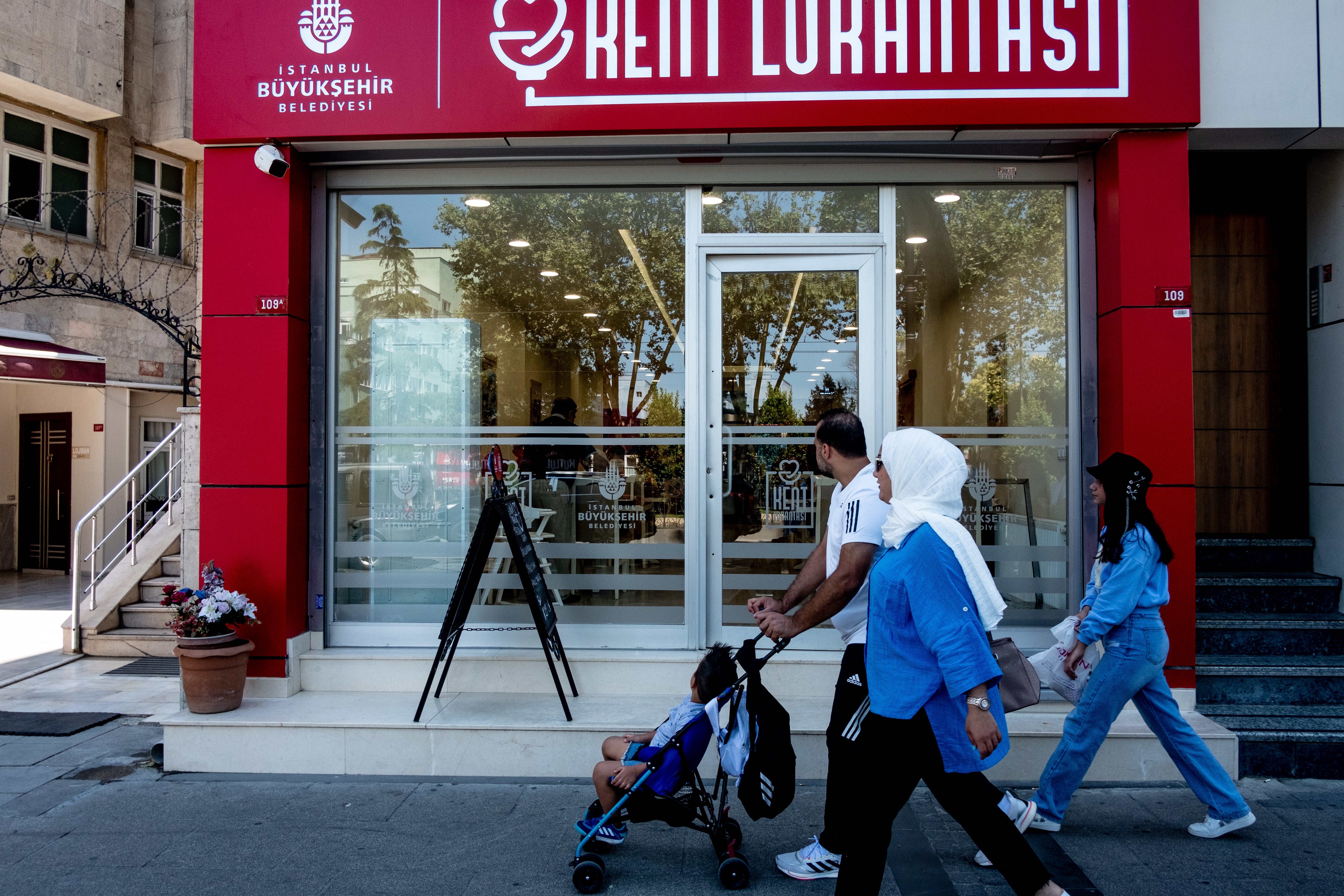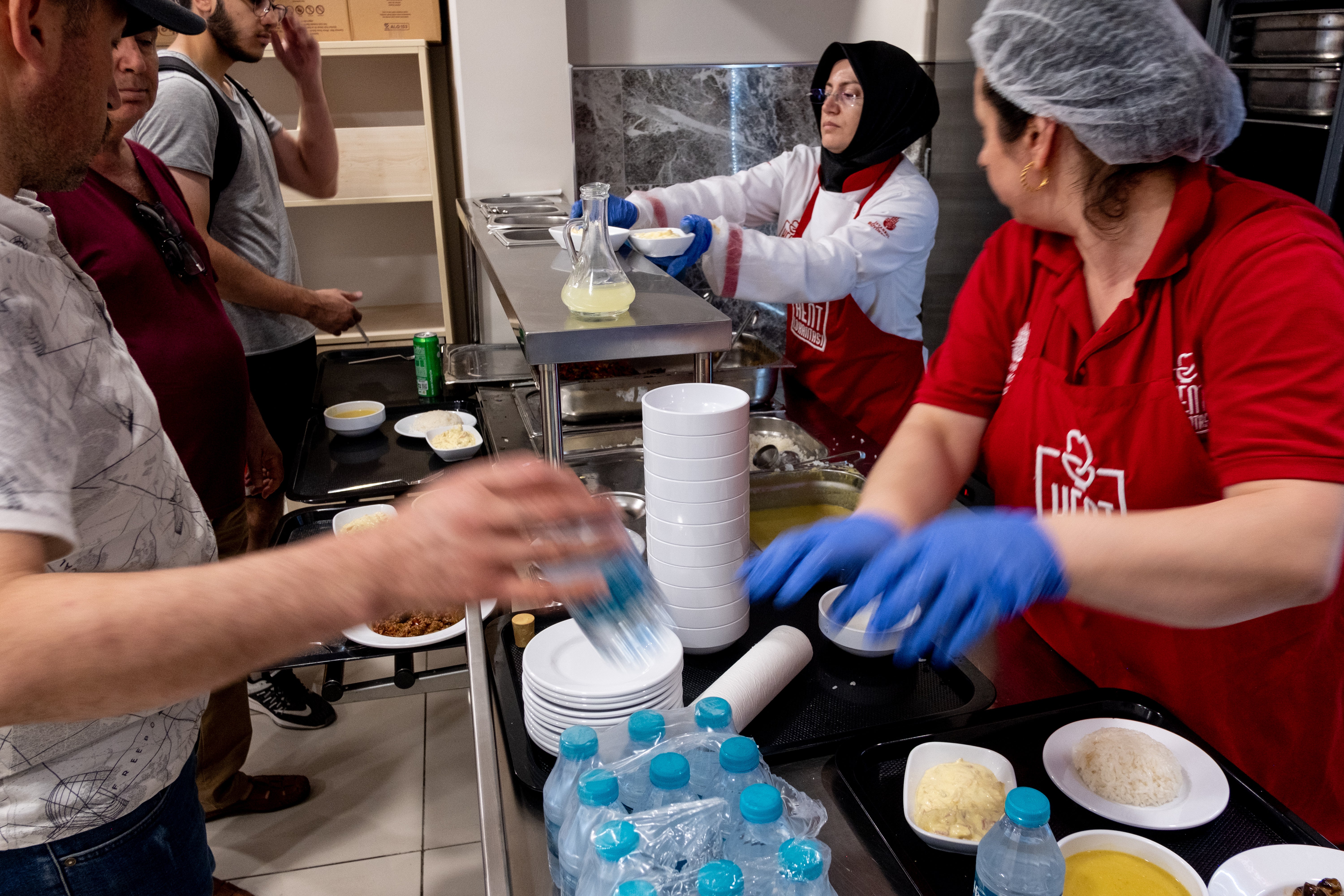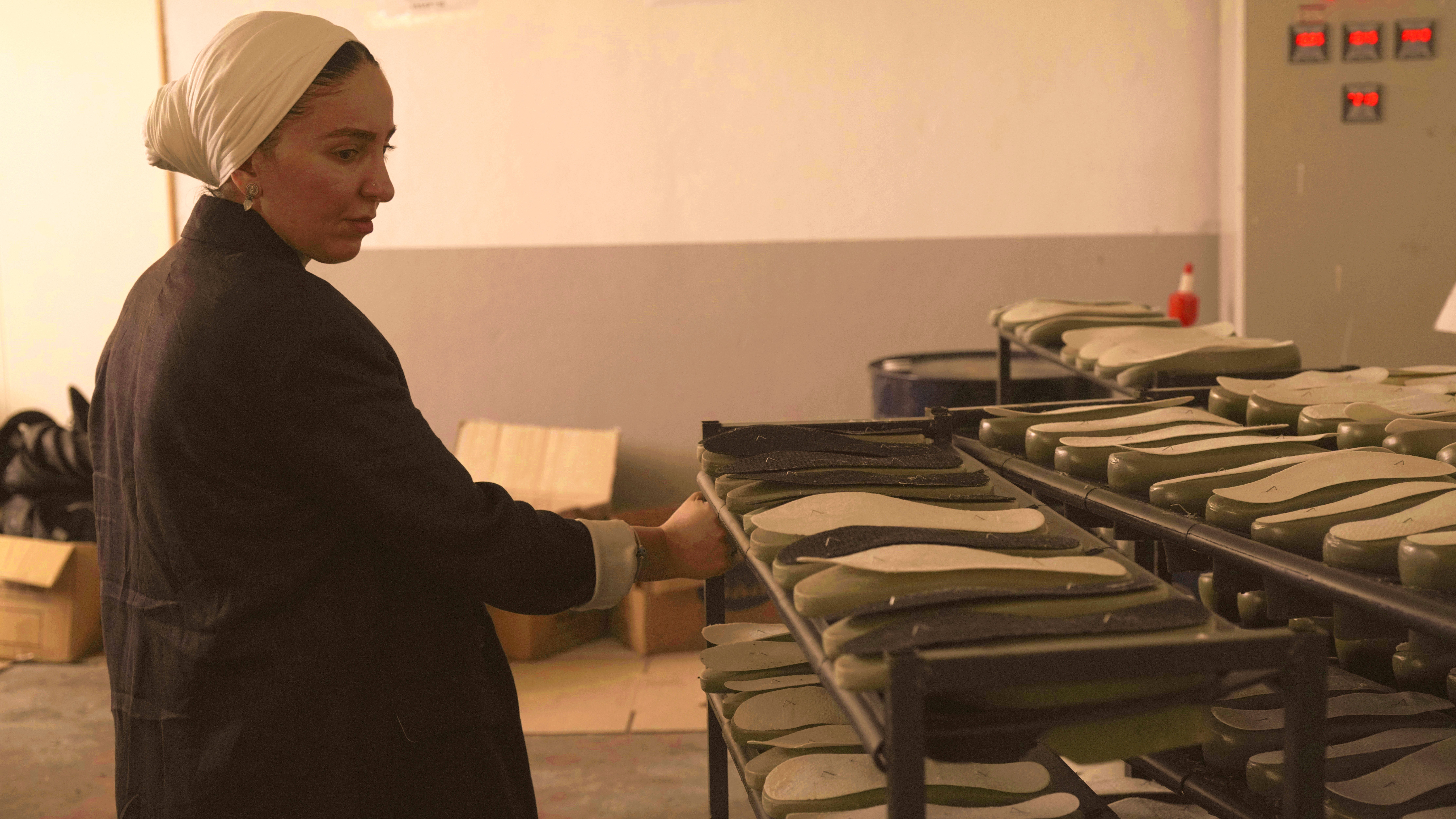Where food is a luxury: Turkey struggles to survive as inflation rises to over 74 per cent
One subsidised restaurant seeks to help Turks facing escalating living costs. But such acts do little against a soaring inflation rate
At noon, the door of the Istanbul City Diner opens and people begin trickling inside. They are university students and retirees, housewives and hospital workers, white-collar professionals and shopkeepers. They are all drawn to the restaurant by the promise of a cheap, healthy meal that, at around £1.40, defies Turkey’s astronomical inflation rate.
“We just graduated and they immediately cut off our meal cards,” says Ege Uretmen, a 23-year-old medical student waiting patiently in line for a meal of chicken stew, rice, soup, salad, a piece of bread and a bottle of water for 29 Turkish lire, the price of a cup of coffee at nearby restaurants.
That is a phenomenal deal, harking back to a time before the lira began to plummet in value. It has collapsed from about five lire to the pound five years ago to more than 20 today. Officially, food prices have doubled over the past year. Unofficially, they’ve soared even higher.
“Right now it’s very hard,” says Uretmen, who lives in a cramped apartment with fellow students. “The main problem is the economy.”
Turkey’s inflation rate last month officially hit a two-decade high of 74 per cent, although independent economists peg it much higher, at 160 per cent – the highest in nearly a quarter of a century. That has meant increased prices for food, housing, clothing, transport and healthcare. Inflation has wiped away savings and erased people’s dreams as they focus on day-to-day survival.

“Five years ago, buying food wasn’t a luxury; now people who are poor and in precarious situations are not able to pay for food,” says Hacer Foggo, a poverty expert who advises the opposition Republican People’s Party. “They are not able to pay for a normal apartment. They can’t pay for natural gas. They’re not able to buy meat or milk; they are getting around on single food packages of just pasta.”
Inflation has created a slew of social problems that will undoubtedly transform lives for years to come. Parents cannot afford baby formula for their infants. Children are being dragged from school into the workforce. Foggo describes a pair of siblings aged 12 and 16 who went out into the street to sell water to help their struggling family make ends meet. A motorcycle struck the 16-year-old, leaving her bedridden and adding to the family’s already dire situation.
Muzaffer Gul started working for a natural gas company during the pandemic, installing gas meters and cutting off the supply when households didn’t pay their bills. Work was busy from the start, he says, but the tempo has steadily ramped up since the beginning of the year. The work is both morally and physically exhausting, he adds, as more and more Istanbul residents are falling behind on their bills.
“People complained a lot on social media, both of the high price of life and naturally because of rising prices,” he says.
The complications often hit society’s most vulnerable, creating a cycle of despair. Poorer women can no longer afford tampons, making it more difficult for them to go to work or school. Clinics that used to hand out free birth control are no longer able to, increasing the risk of unwanted pregnancies. People forgo crucial healthcare, or medicine, leaving ailments untreated. Meat, fish and chicken become unaffordable for the poor – but the inflation rate has also affected the middle class.
“It means living standards are falling and poverty is increasing,” says Timothy Ash, an economist focusing on Turkey at Blue Bay, a London asset management company.

Supply chain complications and rising fuel prices have exacerbated inflationary woes worldwide. But Ash, who closely follows Turkey’s economy, blames much of Turkey’s inflation on the stewardship of its president, Recep Tayyip Erdogan. Erdogan has defied macroeconomic basics by insisting that low interest rates would alleviate inflation, a view not generally shared by economists. The result has been a focus on keeping rates relatively low, and credit available, in an attempt to spur growth.
“Inflation impacts on everyone and everyone can feel it,” says Ash. “It’s hard to feel the difference between 3 or 4 per cent growth and 6 per cent growth. But everyone feels inflation of 75 per cent.”
The slide has wrought havoc on both wage-earners and retirees. The government recently upped the minimum monthly wage by 30 per cent to 5,500 lire, the equivalent of about £276. The minimum wage was increased by another 50 per cent in December. But the current minimum wage remains below the poverty line, according to economists.
Labour laws are loosely enforced in Turkey; unemployment is high, and companies feel they have the upper hand. Many employees are coerced into kicking back any salary increases to their bosses, and are hesitant to demand what they are owed. The country was recently named among the top 10 worst nations in the world for workers’ rights. “Workers are dismissed daily because they join unions and demand their rights,” says Arzu Cerkezoglu, president of DISK, a group of left-leaning trade unions in Turkey.
Many Turks had hoped the fall in the value of the lira combined with easy credit would spur exports and give a lift to industry, creating jobs and jumpstarting the economy. But Turkish producers rely in large part on imported raw materials and parts, which have also increased in cost.
The family-owned By Tanas Shoemaking factory opened last year in Istanbul, budgeting about 70 Turkish lire for the raw material for each pair of shoes. Now the cost has more than doubled to around 150 per shoe. While Turkish wholesalers can only pay about 140 per shoe, customers look for even lower prices, says Ayse Tanas, the factory’s co-owner. For now, she has stopped producing new shoes.
“This whole month has been a dead season for us,” she says. “When they’re not able to afford food, clothes are not a priority.”
The shoes could fetch perhaps £12 a pair abroad in countries like Algeria, Azerbaijan and the Balkans, but the war in eastern Europe has dried up two of the Turkish shoe industry’s most lucrative export markets – Russia and Ukraine – and transport costs and export-related bureaucracy eat away at profits.
Like in other industries, large politically connected conglomerates dominate Turkey’s show exports, squeezing out smaller players like By Tanas, which struggle to meet payroll.
“The big companies, whenever they’re in trouble, get tax relief and debt relief, but the smaller companies have not gotten these advantages,” says Ayse.

The high inflation has soured public faith in government institutions. According to a survey, only about a quarter of Turks believe the official statistics, while more than two thirds place more trust in the unofficial figures that have pegged inflation at around 160 per cent. The soaring prices have had political consequences, with polls showing Erdogan trailing decisively behind several leading opposition politicians, including Istanbul’s mayor Ekrem Imamoglu, ahead of the elecions set to take place in 2023.
The experiment in subsidised dining by the Istanbul mayor’s office began last month, part of a slew of potentially politically motivated projects aimed at helping, as well as building up, goodwill ahead of the vote. Other projects include low-cost daycare for working parents, and subsidised dormitories for university students.
The lunchtime crowd at the City Diner gives an idea of how wide Turkey’s crisis has hit. Among it there are families with children, an elderly woman wearing a traditional headscarf, a lawyer on his lunch break, and a hipster in a black Metallica T-shirt.
“Our target population is students, people making minimum wage, and those making under minimum wage,” says Murat Yazici, a deputy mayor overseeing the diner. He says the mayor’s office hopes to open at least nine more such restaurants by the end of the year, placing them in neighbourhoods throughout the city of 16 million.
Yazici acknowledges that subsidised restaurants, housing and daycare may add to the city’s budget, but suspects they will ultimately cost less than the social and health problems created by inflation.
“We don’t think we will solve poverty with our city diners, but we’re trying to reach as many people as possible with all of our different services. We know we won’t end hunger. But we opened the city diners to alleviate hunger even temporarily, along with other problems that stem from it.”
Naomi Cohen contributed to this report
Join our commenting forum
Join thought-provoking conversations, follow other Independent readers and see their replies
Comments
Bookmark popover
Removed from bookmarks